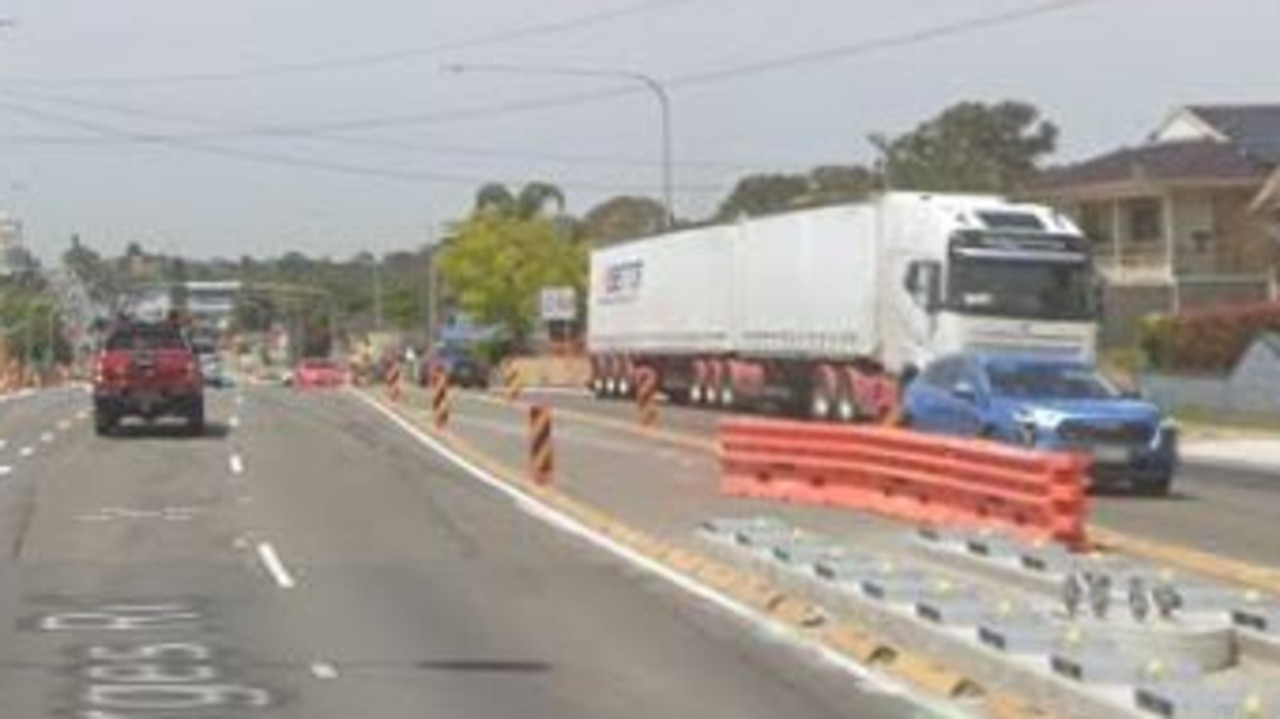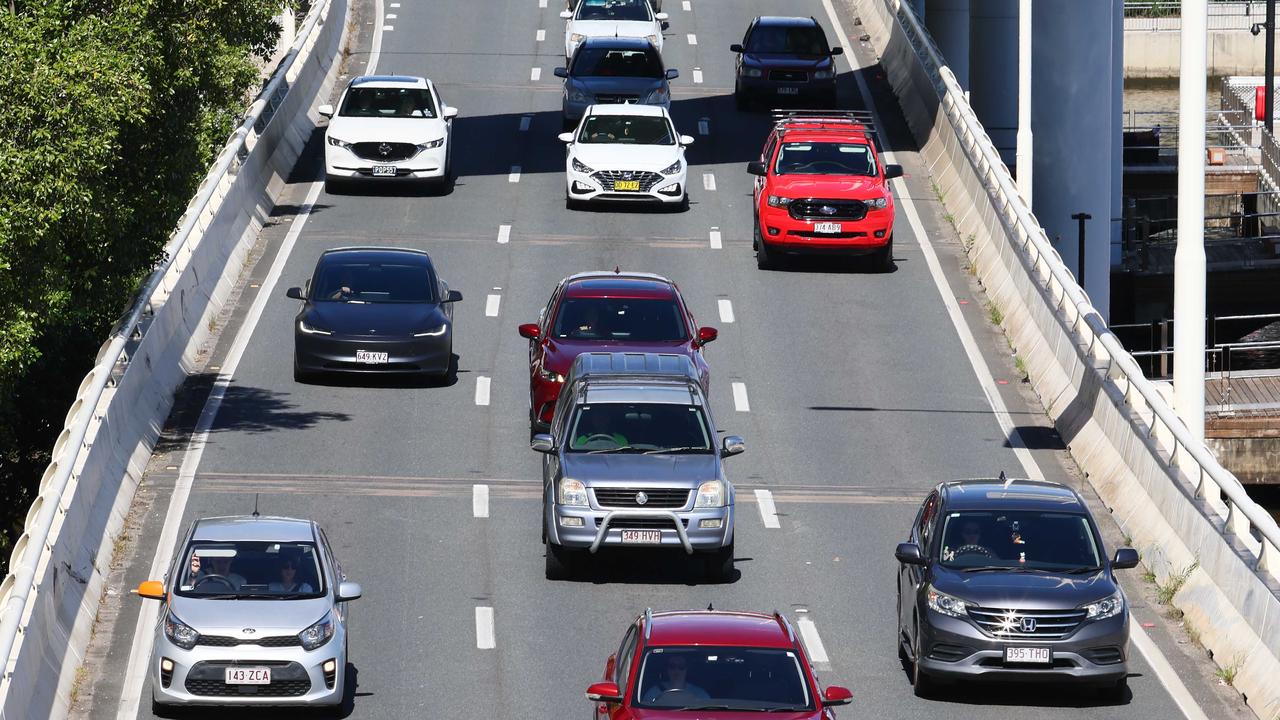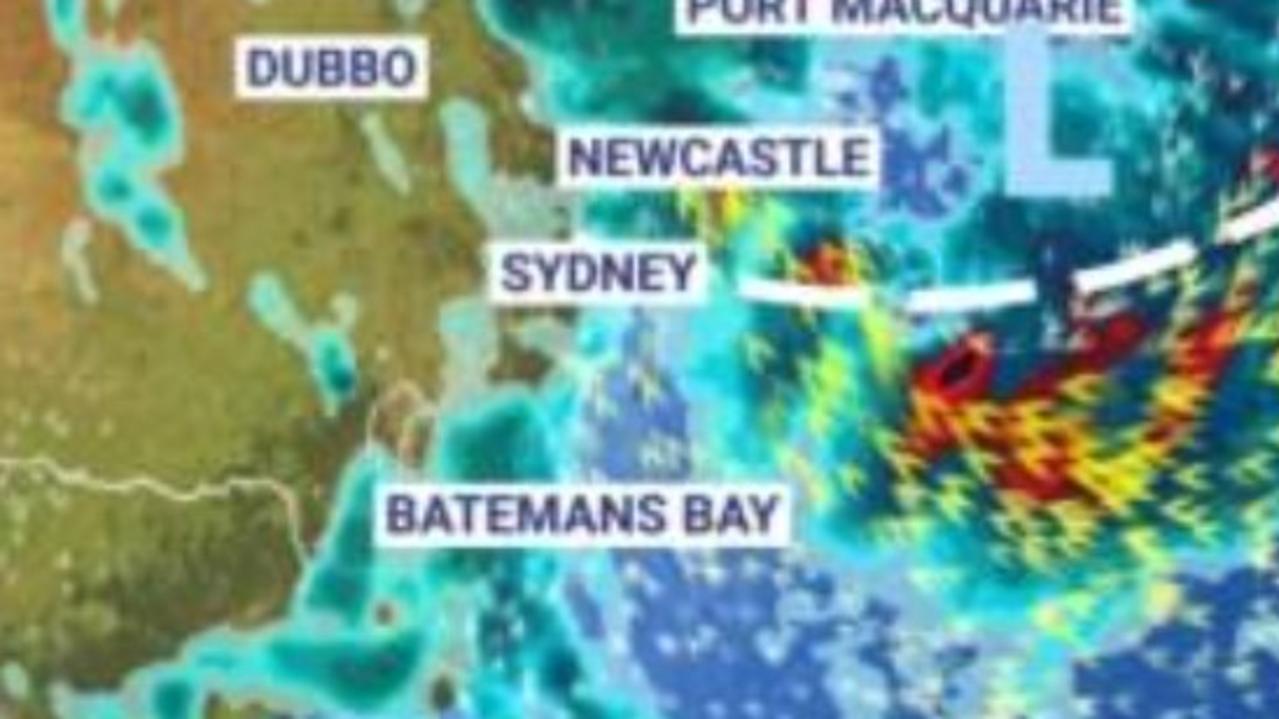Coronavirus NSW: Tougher measures needed to ensure NSW can still eliminate the coronavirus, experts say
NSW faces an anxious 10 days as its control over the coronavirus hangs in the balance, and experts say the state should crack down as Victoria’s outbreak spreads.

NSW has a lot to lose if coronavirus cases from Victoria travel north and experts believe tougher measures are needed to ensure the state preserves its pathway to eliminating COVID-19.
While virus numbers in New South Wales are nowhere near what Victoria is experiencing, experts believe more cases will eventually cross the border.
Two cases have already been confirmed this week in the border town of Albury and one of them had recently travelled to Melbourne. A Melbourne teenager holidaying on the south coast also tested positive.
NSW Premier Gladys Berejiklian said on Thursday there would be no new tightening of restrictions in the state at this stage but the state remained on “high alert”. However the state government later introduced a 14 day quarantine for anyone who had returned from the Greater Melbourne area.
NSW has seen some days of zero new cases but infections have got up to double-digits several times in the last two weeks.
University of NSW Professor Mary-Louise McLaws, is a member of a World Health Organisation (WHO) advisory panel on COVID-19, and told news.com.au that NSW should be going harder on restrictions.
“My position as an epidemiologist is that NSW should be going for elimination so it’s easier to deal with small case numbers, like Western Australia and Queensland,” she said.
Prof McLaws said case numbers in NSW were not yet low enough and restrictions should be wound back.
“It should go back a step and not allow large public gatherings, and not reintroduce the use of large sporting venues without a limit on the size of the crowd.”
RELATED: How Victoria’s coronavirus outbreak happened
RELATED: Melbourne begins six-week lockdown
Currently, there are no longer limits on the number of people allowed at weddings and other events as long as the four-square-metre rule is followed.
People are also allowed to have up to 20 people in their homes.
Melbourne University epidemiologist Professor Tony Blakely agrees NSW should be aiming to eliminate the virus but believes it’s too early to introduce tougher restrictions across the state.
He thinks the best approach would be to do a lot of testing including “contact tracing on suspicion”.
This would see authorities identifying anyone who may have had contact with a positive case in Victoria and asking them to go into isolation pre-emptively even if they were not showing symptoms. Anyone who had been in contact with them in NSW would also be isolated. They would get tested regularly, with the virus generally appearing within five days.
“Get ahead of it,” Prof Blakely said.
“Consider that Melbourne didn’t get on top of it quickly enough.”
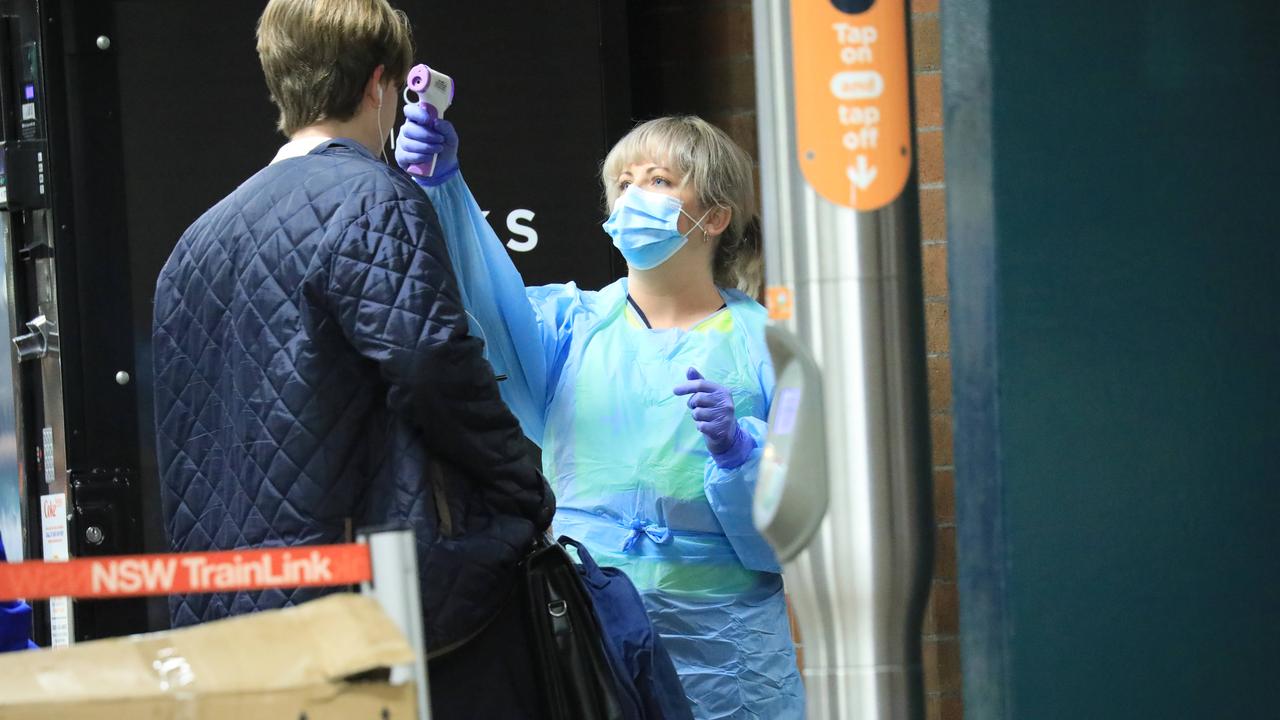
However, Prof Blakely said if cases did start to pop up in places like Western Sydney for example, this would be a different matter.
He believed authorities should be locking down postcodes but not only the postcodes where the positive cases were identified, but also postcodes around them.
“I would be very proactive in NSW, they are so close to eliminating the virus — you don’t want to lose that chance.”
Prof Blakely said the virus could be said to be eliminated if there were no cases without a known source for 28 days.
“Every state and territory in Australia except for NSW and Victoria have achieved this,” he said.
“NSW only had three cases recently, it got so close.
“There will be anxious moments for NSW for the next week to 10 days.”
BENEFITS OF ELIMINATION
Even though Prime Minister Scott Morrison has always said Australia is taking a suppression strategy and not an elimination strategy towards the virus, most of the rest of country has managed to get rid of it almost entirely.
Prof McLaws said it was unlikely the virus would be completely eliminated but getting close to elimination in NSW would make it easier to identify, isolate and do full contact tracing of any cases that did appear.
“If you don’t go for elimination, dealing with an outbreak of the magnitude in Victoria is very difficult,” she said.
“Once cases reach 100 over 14 days, authorities may be too overloaded to do in-depth contact tracing.”
Last week Victoria’s chief health officer Brett Sutton said the state was struggling to cope with the volume of contact tracing required for thousands of people in self-isolation. There are now more than 670 active cases in the state.
This is complicated by the fact that some people don’t get symptoms and so there will always be more cases out there.
“There will always be between 15 and 20 per cent of asymptomatic people who don’t get tested,” Prof McLaws.
RELATED: NSW Premier says Victoria’s spike is ‘wake-up call’
RELATED: Residents of nine towers get virus test results
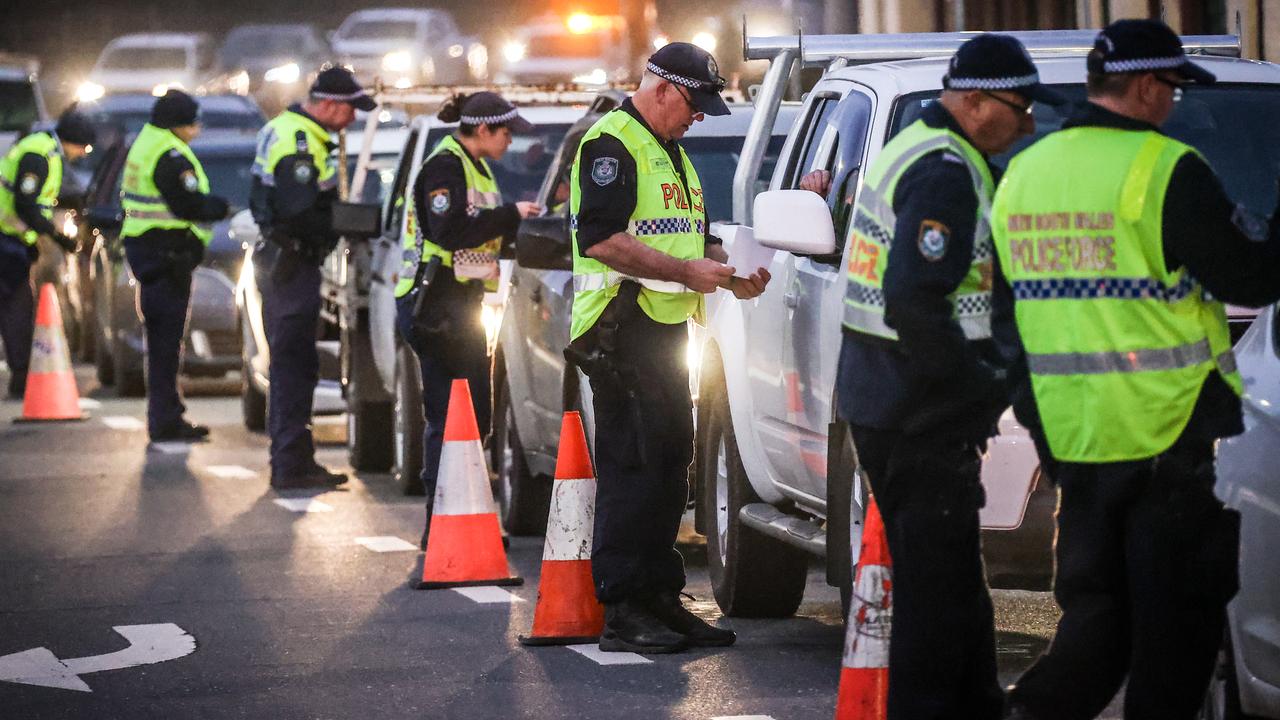
It’s unclear how important asymptomatic people are in driving the pandemic but Prof McLaws said for those who did eventually develop symptoms, they could also pass on the disease two days before they appear.
“That’s why you go for elimination, with that scenario you are still able to deal with a small increase in numbers,” she said.
Prof McLaws said NSW should be aiming for a similar pattern of infections to Western Australia or Queensland, “where there are mostly zero (daily cases) and the odd occasional case”.
This week Queensland recorded its first new coronavirus case in more than a week and this was linked to a returned overseas traveller. There are currently only two active cases in the state.
“I say it would take us a couple of months to get to the point where we were in single-digits,” she said.
Eliminating the virus in NSW would enable it to have open borders with other states and territories, as well as countries like New Zealand. Taiwan and Singapore also look like they will achieve elimination.
She believes the decision to go for a suppression strategy was more of an economic decision.
“Now we have seen the experience and challenges that Victoria has, this is an opportunity for NSW authorities to reconsider the benefits of elimination.”
She believes Victoria could also still have a chance to eliminate the disease, although it would be very hard.
“I think Victoria is using this opportunity to also go for close to elimination, they are going through a lot of pain now and I’m hoping they will achieve that.”
Experts at think-tank the Grattan Institute also believe Australia should switch strategy and adopt an elimination strategy.
However, Australia’s Health Minister Greg Hunt has dismissed the idea that the country should consider an elimination strategy saying “we’ve been very realistic”.
“We’ve achieved extraordinary things but we’ve been honest with the Australian people there would be outbreaks,” Mr Hunt told 7.30 last night.
“We saw other countries that have made predictions and then had to walk back because there had been cases after there have been claims of elimination.”
He said to “pretend that we can wish the disease away is not in my view a realistic or responsible statement”.
“With a global pandemic, a disease which travels silently, a disease which cannot be seen and in many cases is asymptomatic, we have to be honest and up-front with the Australian people and prepare for the long term.”


